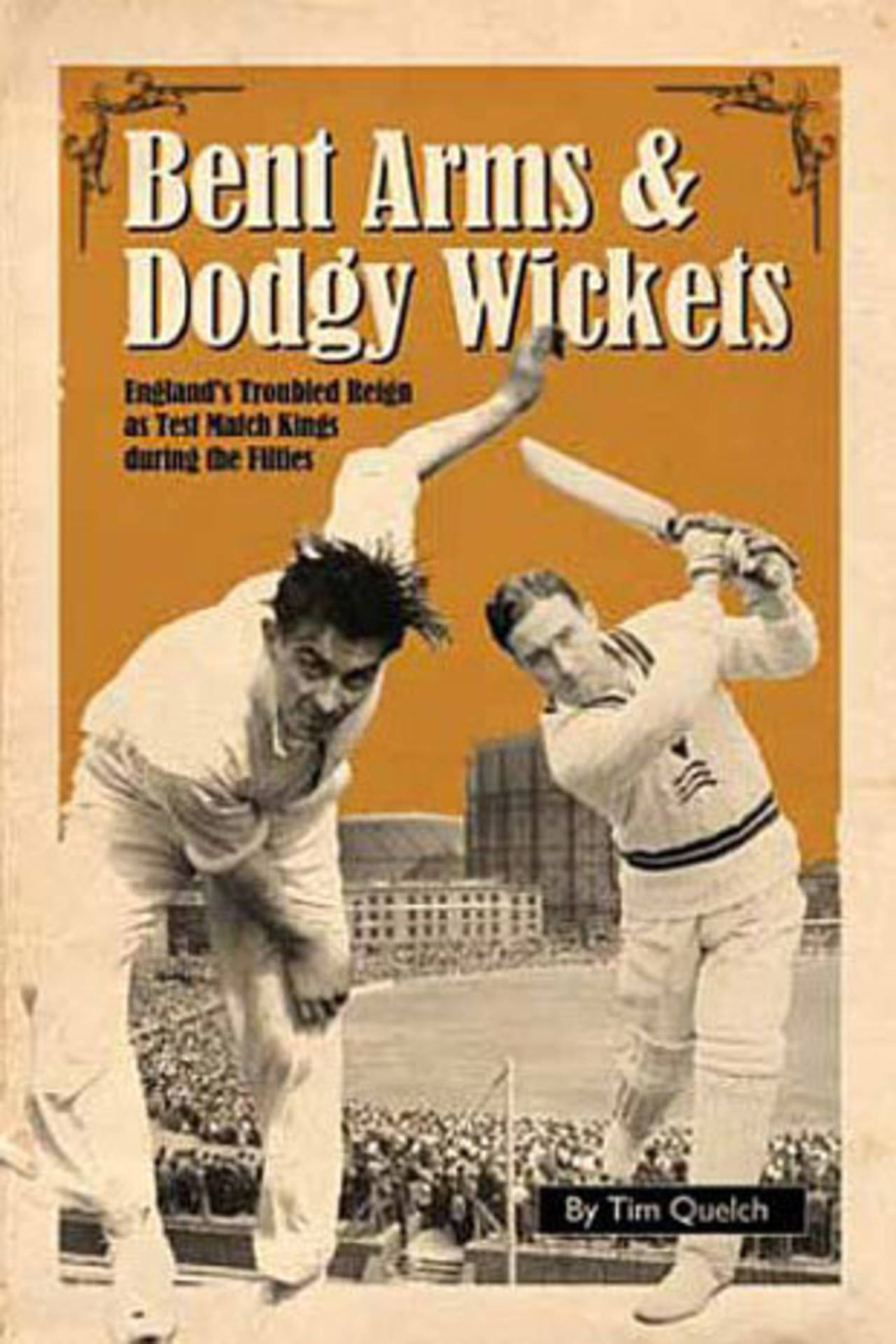Behind the facade of England's fifties
A new book looks at the less-than-pleasant backdrop to England's dominance in the post-war years
Rob Steen
Dec 29, 2012, 2:51 AM

Pitch Publishing
To look back at English cricket in the 1950s is to marvel. Those of a certain vintage could rewrite "My Favourite Things":
Leonard and Cyril and Compton and Cowdrey
Peter and Bi-ill and Brian and Freddie
Tyson and Bedser and Laker and Locky
These are my sources of childhood glee.
Peter and Bi-ill and Brian and Freddie
Tyson and Bedser and Laker and Locky
These are my sources of childhood glee.
Small wonder no Test series was lost between mid-1952 and late 1958. The natural order had finally righted itself: after decades of Australian impertinence, Britannia ruled the waves anew. Trouble was, the ends did nothing to justify the means. The ensuing bumblings and humblings, concludes Tim Quelch, were a consequence of nothing more scientific than complacency, a vice echoed, he charges, in Abu Dhabi and Dubai last winter. The main title of his terrific tome refers to rank hypocrisy over chuckers and the "patriotic" pitches that facilitated victorious Ashes campaigns; it serves both a literal and figurative function.
This is the second of two important recent books to address the shameful spills and conspicuous ills of post-war cricket in Blighty; both, helpfully, are the work of outsiders. Business guru Guy Fraser-Sampson's Cricket at the Crossroads skewered the snobbery, racism and class warfare that connected the D'Oliveira Affair to the Packer revolt. Quelch, a retired social services officer, offers a worthy prequel, examining the blind ferocity with which the old-school ties tethered themselves to the past as the Empire dissolved.
Covering the decade and a half after the Second World War, Quelch skilfully sets the pitifully slow death of shamateurism and the Gents-Players divide against a backdrop of a country divided, one basking in glory yet lacking not only food and funds but acceptance of a less deferential, more meritocratic world. Imperial superiority died hard. The 1956 Suez crisis offers rich symbolism: "As a result of its reckless, abhorrent action, Britain not only bade farewell to its status as a global power, it shattered any pretension it once had of higher integrity. In short, Britain could no longer claim to be a credible arbiter of what was, and what was not, cricket."
Time and place are captured astutely. Between 1950 and 1970, Britain's share of world manufacturing exports fell from over 25% to barely 10%. "I don't understand my country anymore," bemoans Colin McInnes in his landmark 1959 novel Absolute Beginners. "The English race has spread itself all over the damn world… no one invited us… yet when a few hundred thousand come and settle among our fifty millions, we just can't take it." Quelch contrasts such inhospitality with the Indian tourists of 1946, a mix of Hindus, Muslims and Christians, then plunders Sir Everton Weekes' memoirs for evidence of how imperious and provocative Lord's seemed to a poor colonial dreaming of a fairer planet.
On the field, we are told, dominance was achieved despite "class snobbery, anachronistic fixations, an uncompetitive domestic game, unreliable playing surfaces and limited coaching opportunities for those from less privileged backgrounds". Quelch finds it "amazing", as should we, that so much talent still wriggled through: the renaissance was always destined to be brief.
He also nails the ultimate contradiction. In seeking to revive the adventurous influence of the (sh)amateur, MCC repeatedly appointed as captain and tour manager Freddie Brown, who is painted in all his perplexing colours. To Fred Trueman, he was "a snob, bad-mannered, ignorant and a bigot". Brown blew a gasket when Denis Compton had the temerity to pull out of a Test, yet empathised after Len Hutton's deplorable negativity had denied Australia victory: the first was unheard-of, the second old hat. Brown's treatment of the young Brian Close was merciless. How ironic, then, that the success of Hutton's and Peter May's sides should owe everything to "a contradictory, tough, combative, professional style of play that was practised as dutifully by its leading unpaid players as it was by its paid ones".
Quelch likes one quote so much he wheels it out twice, on the second occasion as the aptest of sign-offs: "Tradition," as "Uncle" Joe Mercer, the kindly yet progressive former England football manager, asserted, "is a wonderful friend but a dangerous enemy".
Bent Arms and Dodgy Wickets - England's Troubled Reign as Test Match Kings in the Fifties
by Tim Quelch
Pitch Publishing
253pp, £16.99

by Tim Quelch
Pitch Publishing
253pp, £16.99
Rob Steen is a sportswriter and senior lecturer in sports journalism at the University of Brighton